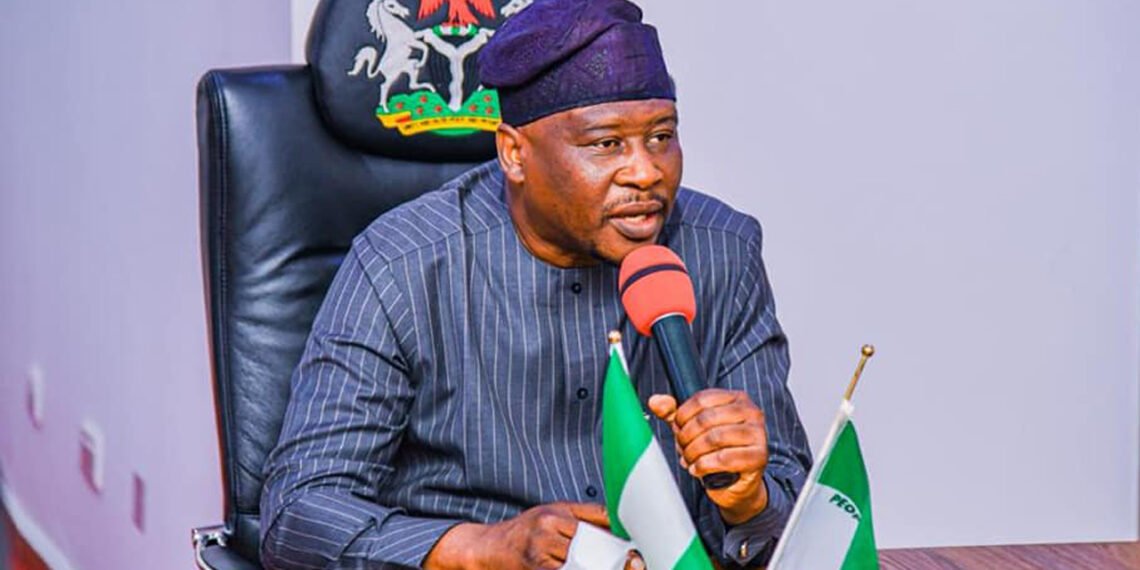The Adamawa State Government has dismissed allegations of misplaced priorities raised in a recent opinion piece by Ibrahim Ahmed Sabana, titled “Adamawa Government’s Misplaced Priorities: Luxury Projects in a Thirsty State.”
In a statement issued by the Office of Communication, Research and Documentation, the government described the article as “riddled with inaccuracies, half-truths, and emotional exaggerations” aimed at misleading the public.
According to the statement, Governor Ahmadu Umaru Fintiri’s administration remains committed to transparency, accountability, and due process in all its operations.
It refuted claims that contracts were secretly awarded to political loyalists, insisting that all major projects were duly approved by the State Executive Council (EXCO) and made public through official channels.
Projects cited include the renovation of the Civil Service Commission building (₦837 million), the facelift of the Presidential Lodge (₦279 million), the construction of the ADSIEC office complex (₦905 million), and the Abuja Liaison Office project (₦794 million).
“The Fintiri administration has made due process the cornerstone of governance. All procurements follow the guidelines of the Adamawa State Bureau of Public Procurement to ensure competitive bidding and value for money,” the statement read.
The government rejected the characterization of its infrastructure projects as “luxury,” describing them instead as strategic investments to enhance efficiency, safety, and service delivery.
Read Also:
- Gov. Fintiri reaffirms commitment to security in Adamawa
- 2027: Adamawa in search of a grassroots politician
- Adamawa to expend N14bn on new conference centre, other infrastructural projects
Similarly, the ₦181 million allocated for height restriction barriers and signage at the state’s flyovers was described as a “public safety measure, not a cosmetic beautification project.”
Responding to claims that Adamawa remains a “thirsty state,” the government said it has made significant progress in improving access to clean water in both urban and rural areas.
It cited upgrades to treatment plants in Yola, Numan, Fufore, and Mubi, as well as ongoing projects such as the Gulak Water Scheme (₦360 million) and the Jada Township Water Project (₦481 million).
The statement also mentioned the installation of solar-powered boreholes in rural communities including Gella, Lamurde, Borrong, Garkida, and Mapeo.
On rural electrification, the government listed projects across Hong, Gombi, Mayo-Belwa, Fufore, Shelleng, and Yola South local government areas, including the Ribadu–Sangere–Wuro Hausa electrification project, which has reportedly improved security, education, and local enterprise.
The Fintiri administration further highlighted reforms in the health sector, such as the renovation of all general hospitals, procurement of CT scan and dialysis machines—making dialysis services free at the Adamawa Specialist Hospital—and installation of solar hybrid power systems in six cottage hospitals.
The statement stressed that the government’s development strategy is holistic, citing ₦4.3 billion spent on education, ₦2.6 billion on agriculture, and over ₦2 billion on health and water supply projects. Urban renewal efforts, including township roads and flyovers, have also improved commerce and mobility, it said.
“These initiatives are not for decoration or political showmanship,” the statement added. “They are meant to stimulate the economy, attract investment, and create jobs.”
While acknowledging the value of constructive criticism, the government urged commentators to uphold journalistic integrity and avoid what it described as “deliberate distortion of facts.”
“Sabana’s article would have carried more moral weight had it balanced criticism with recognition of progress,” the rejoinder stated. “It reads more like an attempt to rubbish governance through fallacies rather than to enlighten the public.”
Reaffirming its commitment to transparency and service delivery, the government maintained that Adamawa is making measurable progress under Governor Fintiri.
“Adamawa is not thirsty; it is thirsting for truth in public discourse,” the statement concluded. “From upgraded water schemes to revitalised hospitals and expanded electrification, every sector is witnessing transformation. No amount of distortion can erase visible progress.”






